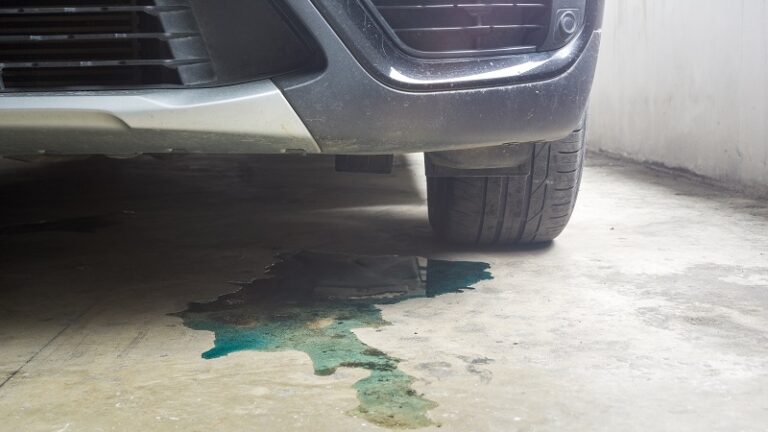Does Coolant Flush Help AC?

When it comes to vehicle maintenance, many car owners wonder if a coolant flush can help improve their air conditioning (AC) system. The cooling system and AC system in a car serve different purposes but work together to ensure your vehicle operates efficiently. So, does a coolant flush directly impact the performance of your AC? Let’s dive into the details.
What Is a Coolant Flush?
A coolant flush is a service that involves removing old, degraded coolant (antifreeze) from the cooling system and replacing it with fresh coolant. This process cleans out debris, rust, and contaminants that may have accumulated in the system, ensuring the engine remains properly cooled.
The Role of Coolant in Your Vehicle
The coolant primarily serves the following purposes:
- Regulating Engine Temperature: It absorbs heat from the engine and dissipates it through the radiator.
- Preventing Corrosion: Coolant contains additives that protect the engine’s cooling system from rust and corrosion.
- Preventing Freezing and Overheating: It ensures the engine operates within the optimal temperature range, even in extreme weather conditions.
Does Coolant Impact the AC System?
While the coolant and AC systems are separate, they are indirectly connected. Here’s how:
1. Engine Temperature and AC Efficiency
The engine cooling system helps maintain an optimal engine temperature. If the cooling system is not functioning properly, the engine may overheat, which can lead to poor AC performance.
- Why? When the engine overheats, the AC system may struggle because it relies on the engine for power. Additionally, modern vehicles often prioritize engine cooling over AC performance during overheating conditions.
2. Coolant and the Heater Core
The heater core, which is part of the cooling system, plays a role in regulating the temperature inside the cabin. Issues with the heater core or contaminated coolant can affect the overall climate control, including AC effectiveness.
Does a Coolant Flush Help Your AC System?
A coolant flush does not directly impact the air conditioning system since the AC uses refrigerant, not coolant. However, it can indirectly improve the overall performance of your vehicle, which may benefit the AC system in the following ways:
Improved Engine Cooling
A properly functioning cooling system ensures the engine operates efficiently, which can enhance AC performance by preventing engine overheating.
Prevention of Heat Transfer Issues
Old or contaminated coolant can lead to inefficient heat transfer, which can affect the vehicle’s ability to regulate cabin temperature.
Signs You Need a Coolant Flush
Here are some common indicators that your vehicle might benefit from a coolant flush:
- Overheating engine.
- Rust or debris in the coolant reservoir.
- Discolored or sludgy coolant.
- Poor heater performance in cold weather.
If you notice these symptoms, addressing the cooling system can also help your AC work more effectively under normal conditions.
The Difference Between Coolant and Refrigerant
It’s important to understand the difference between coolant and refrigerant:
- Coolant: A liquid that circulates through the engine to regulate temperature.
- Refrigerant: A gas used in the AC system to cool the air inside the cabin.
A coolant flush addresses engine cooling, while AC performance depends on refrigerant levels and the condition of AC components like the compressor, evaporator, and condenser.
When to Consider an AC Check
If your AC isn’t performing well, it’s unlikely that a coolant flush alone will solve the issue. You should check the following:
- Refrigerant Levels: Low refrigerant can cause poor cooling.
- AC Compressor: A failing compressor can impact airflow and cooling.
- Condenser and Evaporator: Clogged or damaged components can reduce AC efficiency.
FAQs About Coolant Flush and AC
1. Can a coolant flush fix AC problems?
No, a coolant flush won’t directly fix AC problems. However, it can prevent overheating and improve the overall performance of your vehicle, which may indirectly benefit the AC system.
2. How often should I flush my coolant?
It’s recommended to flush your coolant every 30,000 to 50,000 miles, or as specified in your vehicle’s owner’s manual.
3. What should I do if my AC isn’t working properly?
Check refrigerant levels, inspect the AC compressor, and ensure the condenser and evaporator are clean. If issues persist, consult a professional mechanic.
4. Does coolant affect cabin temperature?
Yes, the coolant affects the heater core, which helps regulate cabin temperature. However, it does not directly cool the air provided by the AC system.
5. Is a coolant flush worth it?
Yes, a coolant flush can improve engine cooling, prevent overheating, and prolong the life of your vehicle’s cooling system.
Conclusion
While a coolant flush doesn’t directly improve AC performance, it plays a crucial role in maintaining your engine’s temperature, which can indirectly benefit the AC system. For optimal results, ensure both the cooling system and AC system are properly maintained. If you’re experiencing AC issues, it’s best to focus on refrigerant levels and AC components. Regular maintenance, including coolant flushes, helps keep your vehicle running smoothly and ensures you stay comfortable on the road.
Also Check:
• Does Auto AC Stop Leak Work?





